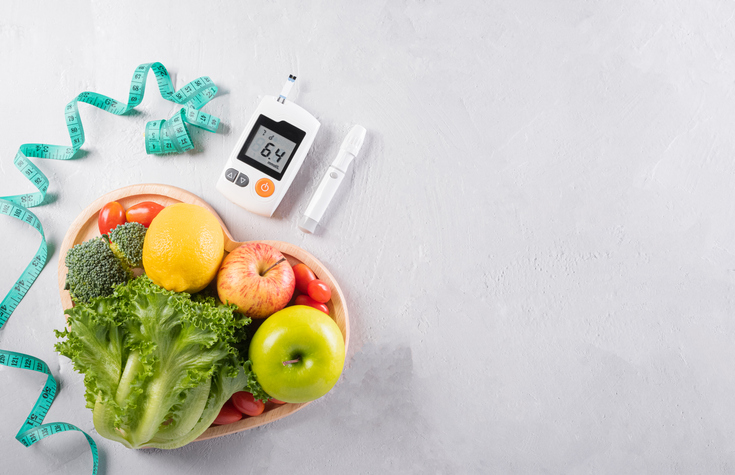What Is Prediabetes?
Diabetes is generally is on the increase, but at Menopause can be a particular risk.

Unfortunately at menopause many women do put on extra weight – and that is a risk factor for diabetes – but you may notice signs of pre diabetes first.
It is often described as the “grey area” between normal blood sugar and diabetic levels. In the UK, up to 7 million people are estimated to have it and so have a high risk for developing type 2 diabetes.
What is it?
It’s when your blood sugar is higher than normal, but not high enough to be called diabetes.
You won’t necessarily notice any symptoms as you can have it and not know it. A simple blood test from your doctor can tell you if you do and if you have a monitor at home then if your reading is over 5.5 up to 6.9 then that indicates prediabetes.
You’re at risk if you’re overweight, over 45, and you don’t exercise.
These factors can make you more likely to have type 2 diabetes and heart disease, but you can take steps to change that.
Reducing your risk factors
There are a number of ways to do this, none of them are earth shattering or something you probably don’t already know, but check these to see how many could apply to you.
Lose weight
I know that is a constant theme at menopause, but it doesn’t have to be a lot of weight you need to lose.
If you lose just 7% of your body weight, then that can make a huge difference.
Hormone imbalance from oestrogen dominance can certainly increase your weight, so start there as low progesterone levels may be implicated, and adopt a diet that can help you redress that.
Have a healthy diet
Not always easy when you are not sleeping, flushes are driving you crazy and your moods demand comfort food and sweet treats!
A good rule of thumb is to fill half your plate with non-starchy vegetables (asparagus, Brussels sprouts, and carrots, among many others).
One quarter should have starchy foods (like potatoes, sweetcorn, or peas). The remaining quarter should be protein and chicken, fish, or beans are best.
Be extra careful with carbohydrates like baked goods or pasta as they can raise your blood sugar.
Prioritise sleep
The right amount of sleep helps keep your blood sugar at healthy levels. If you can’t stay asleep, wake up too early, or get less than 5 hours a night, you’re more likely to get diabetes.
About 7 or 8 hours a night is ideal and for better sleep, don’t have alcohol or caffeine late in the day, keep regular sleep hours, and stick to a calm, quiet bedtime routine.
Don’t smoke
If you smoke, now’s the time to quit. Smokers are 30% to 40% more likely to get type 2 diabetes than nonsmokers.
More worrying is if you get diabetes and still smoke, your symptoms may be worse and your blood sugar may be harder to control.
Exercise
You’ll lose weight faster and feel better if you burn more calories, so sitting too long and no exercise is the worst scenario.
You don’t need to train for a marathon as a brisk 30-minute walk five times a week should do the trick and if you can persuade a friend to join you that can also improve. your chances of sticking with it.
Aerobic exercise (walking, swimming, dancing) and some strength training are both good and a little of both is best.
Get support when stressed
Stress can be another factor that seriously impacts our health and one of the biggest differences can be when we are able to just ask for some help.
Whether that’s a phone call, coffee with a friend or a specific support group really doesn’t matter, it’s that you are able to reach out and not feel on your own with whatever you are coping with.
Helpful information
Because there are no really obvious signs for pre-diabetes, it is always worth checking your sugar levels which can be done with a simple at home monitor or ask at your surgery.
A Diabetes Prevention Programme study online at the Diabetes UK website conclusively showed that people with borderline diabetes can prevent the development of type 2 diabetes by making dietary changes and increasing their level of physical activity.
By making these changes, blood sugar levels can be returned to normal.
Addressing issues of oestrogen dominance and any weight gain is also key in tackling the risk for pre-diabetes.
It is clear that by addressing diet and lifestyle factors you can really make a difference to your risk, and a specific diet to help is below.
https://anna.blog.wellsprings-health.com/the-diet-to-help-beat-oestrogen-dominance/


















